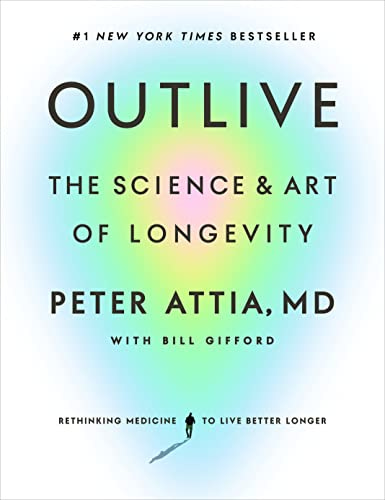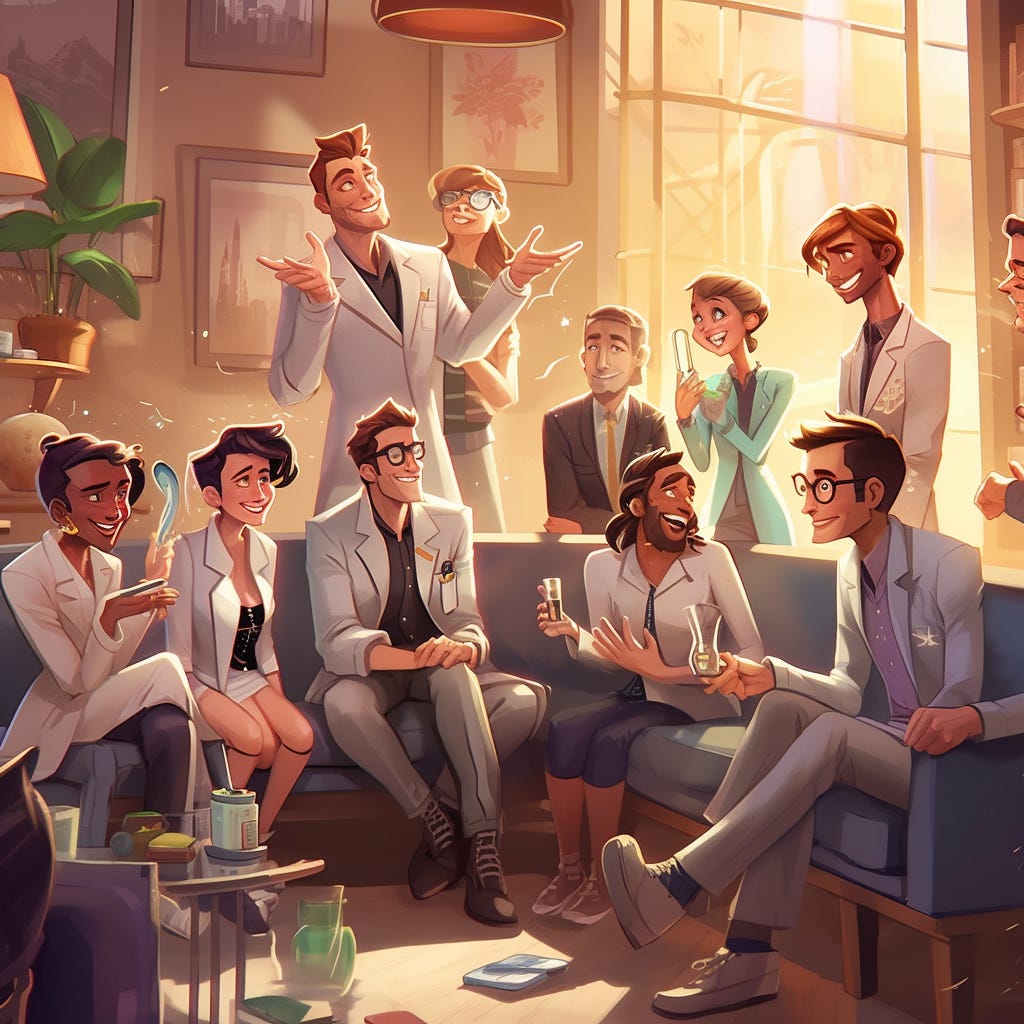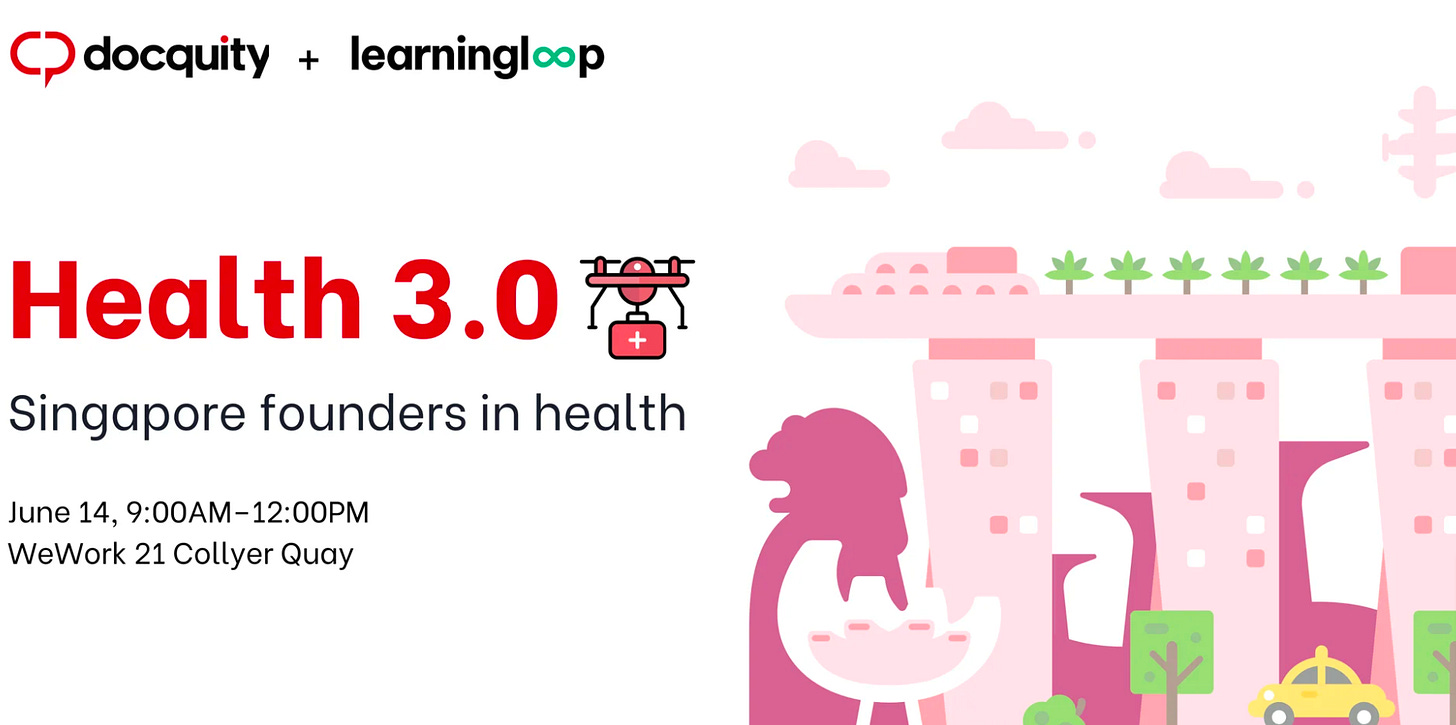Newsletter 107: Embracing Medicine 3.0: Fostering Serendipitous Connections for Health Tech Founders in Singapore
Upon joining Docquity a year and a half ago, I felt insecure. After all, that was my first job in healthcare, where my knowledge was quite limited.
Fast forward a year and a half, and I still wouldn't claim to be an expert. However, I have come a long way, learning something new daily as I get exposure to various projects across medical education, professional development, and community building.
At Docquity, we have built a community of nearly 400,000 healthcare professionals. As a result, I get access to some of the brightest doctors across Southeast Asia. The more I work with the community, the better I understand the sector. With that in mind, I started noticing many things in my surroundings better. My views of previously mundane activities like doctor visits, purchasing medication, and medical education have transformed. This heightened focus has encouraged me to read more and continuously engage with smart people in the field.
My growing interest is further propelled by my aging parents, who increasingly grapple with health-related concerns…
Step by step, I have started building a better understanding of the ecosystem.
As an entrepreneur, I tend to break down complex topics into their fundamental components, I frequently employ mental frameworks that simplify intricate processes into digestible narratives to accomplish thises.
One such framework is Peter Attia's Medicine 3.0.
Peter is a Stanford University School of Medicine graduate with experience at Johns Hopkins Hospital. As the host of one of the most popular health podcasts —The Drive, and the author of Outlive: The Science and Art of Longevity, Attia is among the brightest minds in the field.
I appreciate the Medicine 3.0 framework, as it mirrors the internet's progression from Web 1.0 to Web3 in delineating the evolution of medicine from 1.0 to 2.0 to 3.0.
Let’s dive in.
The Transformative Journey of Medicine: 1.0, 2.0, and Beyond
Medicine 1.0 — from the dawn of time to the late 17th century
Medicine 1.0 represents a time when scientific thought was inexistent. Our understanding of the natural world was shrouded in mystery.
Science is basically a process rather than a definitive answer. It involves examining our surroundings, formulating hypotheses, designing experiments, and measuring results in an iterative and corrective manner.
Whereas in the era of Medicine 1.0, conclusions were based on direct observation and guesswork.
Practitioners did not know how to test hypotheses, resulting in many theories based on superstition and folklore. In fact, many methods from that time proved to be harmful.
Let's take the example of bloodletting.1 Back in the days, it was a standard treatment for various ailments. Yet, today we know that bloodletting often leads to anemia, infections, and even death.
As we reflect on Medicine 1.0, we must acknowledge the progress we have made since then. The advent of scientific thought has enabled the evolution of medical knowledge, advancing healthcare practices and improving patient outcomes.
Medicine 2.0 emerges — late 17th century to today
Medicine 2.0 is essentially medicine as we know it today.
It all started with the contributions of Francis Bacon and the establishment of the scientific method. Yet, the first tangible changes in medicine occurred only in the late 19th century with the advent of germ theory.
While it took about 200 years for Medicine 2.0 to truly take over society in its current form, that period was instrumental. Humanity went through some incredible breakthroughs, like penicillin.
According to Peter Attia, Medicine 2.0 can be characterized by three fundamental developments:
1) the acceptance of germ theory,
2) the adoption of scientific thinking, and
3) the establishment of statistical machinery, enabling randomized control trials, often considered the "crown jewel of Medicine 2.0."
Despite its remarkable advancements, Peter believes Medicine 2.0 is not the final phase of medical evolution:
"Medicine 2.0 has been an amazing development. I don't want to minimize it, but I want to acknowledge [that] Medicine 2.0 has really peaked."
The approach has proven highly effective in treating acute conditions like life-threatening infections, car accident injuries, or myocardial infarctions. The primary goal has been to prevent death and prolong life during these critical moments. We live longer than ever, but it’s often a pain-filled life.
In turn, Attia suggests that we have reached Medicine 2.0's capacity limits. If the pursuit of longer and, most importantly, healthier lifespans is our ultimate aspiration, a new strategy is required. This realization paves the way for the next stage in the evolution of medicine, pushing the boundaries of our understanding and expanding the horizons of healthcare.
The Next Frontier: Medicine 3.0
Just as medicine underwent a fundamental shift from 1.0 to 2.0, we now stand on the precipice of another transformative leap—from Medicine 2.0 to 3.0.
This new paradigm, Medicine 3.0, is predicated on evidence-informed rather than evidence-based guidelines. The focus shifts toward early preventative measures for chronic conditions, which currently represent the dominant source of morbidity and mortality, rather than acute conditions.
Medicine 3.0 emphasizes a highly personalized approach to healthcare. Although we have not fully arrived at this stage, we are in the midst of the transition. Peter Attia believes we should be accelerating the move toward Medicine 3.0, prompting the question: How far away are we from fully realizing this new era of healthcare?
Figuring out an exact timeline is challenging, as the progression depends on the rate at which people adopt and demand change. However, our willingness to embrace a more personalized, preventative, and evidence-informed approach to medical care will shape the push toward this new era.
Some people call it longevity, others preventive health. The key idea here is that Medicine 3.0 aims not only to prolong life but also to improve our health span, aka the length of time that the person is healthy—not just alive.
As I delved into the concept of Medicine 3.0, I became fascinated by this approach to healthcare that focuses on personalized, preventative measures for chronic conditions. Exploring the evolution of medicine from its rudimentary beginnings in Medicine 1.0 to the present day Medicine 2.0 made me realize the need for a paradigm shift toward a more evidence-informed and technology-enabled future. Medicine 3.0's potential to not only prolong life but also improve health span has captivated my interest, inspiring me to learn more and engage with other professionals in the health tech ecosystem.

Bridging the Gap: Building a Community of Change-Makers in Health Tech
As I dive deeper into the captivating world of health, I see the potential of Medicine 3.0 to cut costs and improve our quality of life. In turn, I recognize the value of promoting collaboration among health tech founders. The builders who are working on the foundations of the next wave of healthcare. In my opinion, it is essential to encourage serendipitous connections within this ecosystem to solve some of the biggest problems out there.
To help bring together like-minded individuals, I have teamed up with LearningLoop to run a monthly meetup for founders in health tech called "Health 3.0".
About Health 3.0
Just as Medicine 3.0 envisions a more personalized and preventative approach to healthcare, our Health 3.0 meetups aim to create an informal atmosphere where founders and other curated experts in the field can connect, learn, and collaborate. Hosted in the heart of Singapore, these monthly events will cater to builders working across biotech, life science, longevity, and other adjacent sectors.
Our Health 3.0 meetups are not your typical stuffy networking events. Instead, we focus on creating a fun, exciting, and engaging environment that encourages the exchange of ideas and the discovery of new opportunities. Whether you're just starting out or a seasoned founder, Health 3.0 is the perfect place to network, learn, and have fun with fellow health founders.
The name Health 3.0 reflects our forward-thinking approach to the field of health and life sciences. It signifies that we are moving beyond the traditional models of healthcare (Health 1.0) and the more recent era of digital health (Health 2.0) towards a new era of healthcare that is more integrated, personalized, and technology-enabled.
By organizing the Health 3.0 meetup events, we hope to contribute to connecting better the fragmented ecosystem of founders in Southeast Asia and drive serendipitous opportunities.
About LearningLoop
LearningLoop is a tight-knit, competent network of founders based out of Singapore and beyond.
This partnership aims to create an even more enriching environment for our Health 3.0 participants, enabling them to connect with individuals who share their passion for success and are at a similar stage in their entrepreneurial journey.
By joining forces with LearningLoop, we can offer our Health 3.0 community several additional perks, including:
Shared Resources: LearningLoop works with some of the brightest founders in Singapore. Their community encourages its members to tap into each other's networks and resources. In turn, this collaboration allows Health 3.0 participants to make valuable introductions and recommendations, compounding their growth and success in the health tech ecosystem.
Personalized Private Conversations: LearningLoop provides an opportunity for members to engage in meaningful conversations that unlock their potential. Through personalized prompts generated based on what's top of mind for each participant, Health 3.0 attendees can now benefit from thought-provoking discussions that inspire growth.
Our collaboration with LearningLoop is all about supporting founders to grow. We're excited to see how this partnership will connect even better the startup ecosystem.
* Please note that you will need to submit an application to attend the event. We will do our best to curate the crowd to deliver a lot of value to each other.
The process of removing blood from a patient.









